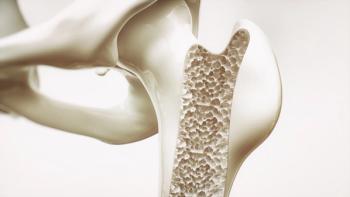
Two Prolia Biosimilars, One for Xolair Are in the Offing, Says AscellaHealth Report
The report also discusses the spurt of Stelera biosimilar approvals in late 2024.
FDA approval of two biosimilars to Prolia (denosumab) and a biosimilar to Xolair (omalizumab) are in the works, although none of them have PDUFA dates yet, according to AscellaHealth’s most recent Specialty & Rare Pipeline Digest report.
The report by the specialty pharmacy benefit management company headquartered in suburban Philadelphia also discusses the surge of FDA approvals of biosimilars to Stelara (ustekinumab) in the last few months of 2024. Otulfi (ustekinumab-aauz), Imuldosa (ustekinumab-srif) and Yesintek (ustekinumab-kfce) were OKed by the U.S. drug regulatory agency in late 2024. The FDA also approved Steqyema (ustekinumab-stba), in December 2024, although it is not mentioned in AscellaHealth’s report. The FDA has approved a total of seven biosimilars to Stelara, a treatment for plaque psoriasis, Crohn’s disease, ulcerative colitis and other autoimmune diseases with annual sales worth about $10 billion.
Prolia is FDA-approved as a treatment for osteoporosis in postmenopausal women and to increase bone mass in men with osteoporosis. The FDA has approved one Prolia biosimilar, Sandoz’s Jubbonti (denosumab-bddz).
HLX14, made by Shanghai Henlius Biotech and Organon, is one of the Prolia biosimilars in the wings. The other is Celltrion’s CT-P41. The FDA accepted a biologics license application (BLA) or HLX14 in October 2024, but the AscellaHealth report says no date — the so-called PDUFA data — has been set for an FDA decision on the application. The application is supported by two studies, a two-part phase 1 trial and an international phase 3 trial comparing HLX14 to Prolia among postmenopausal women with osteoporosis at high risk of fracture.
The FDA accepted an abbreviated BLA for CT-P41 back in November 2023, according ot AscellaHealth. In April 2024, Celltrion presented data at osteoporosis meeting that showed no difference between its biosimilar and Prolia. The company presented additional data showing difference in safety between the two drugs. If CT-P41 is approved, it will have interchangeable status with Prolia, according to AscellaHealth.
A third biosimilar wending its way through the FDA approval process and then market launch is another Celltrion product, CT-P39, a biosimilar to Xolair (omalizumab), which has been approved by the FDA as a treatment for asthma caused by allergies and as medication that can reduce allergic reactions to foods. Xolair’s formulation patent is scheduled to expire November 2025. Celltrion filed a BLA in March 2024, and European drug regulators approved CT-P39 in May 2024. It is being sold in Europe under the brand name Omlyclo. No PDUFA has been set for CT-P39, although the AscellaHealth report say it is expected to be set for some time during the first half of this year.
Newsletter
Get the latest industry news, event updates, and more from Managed healthcare Executive.

























